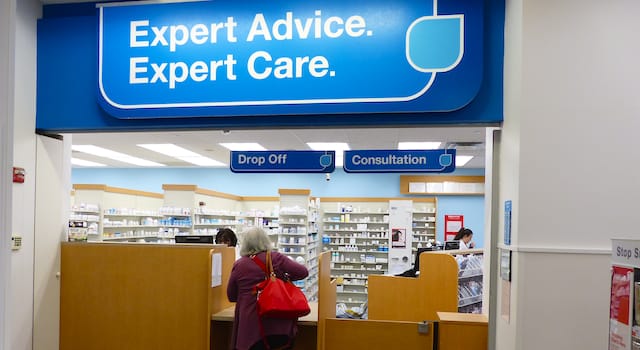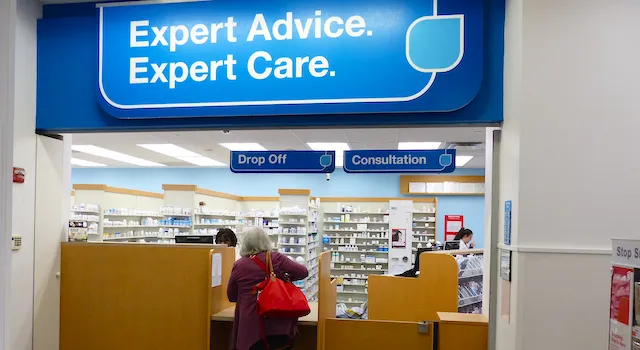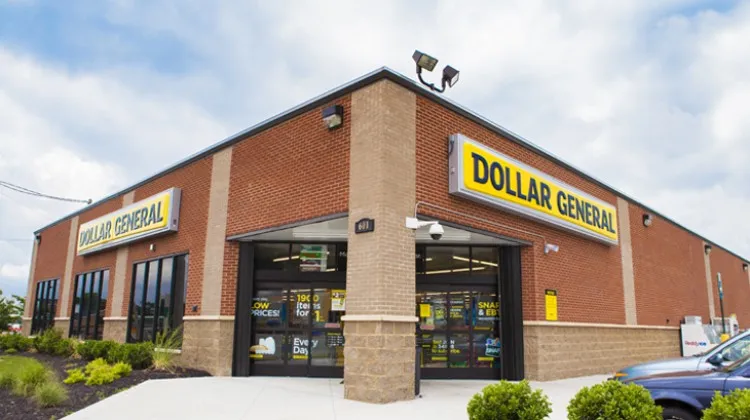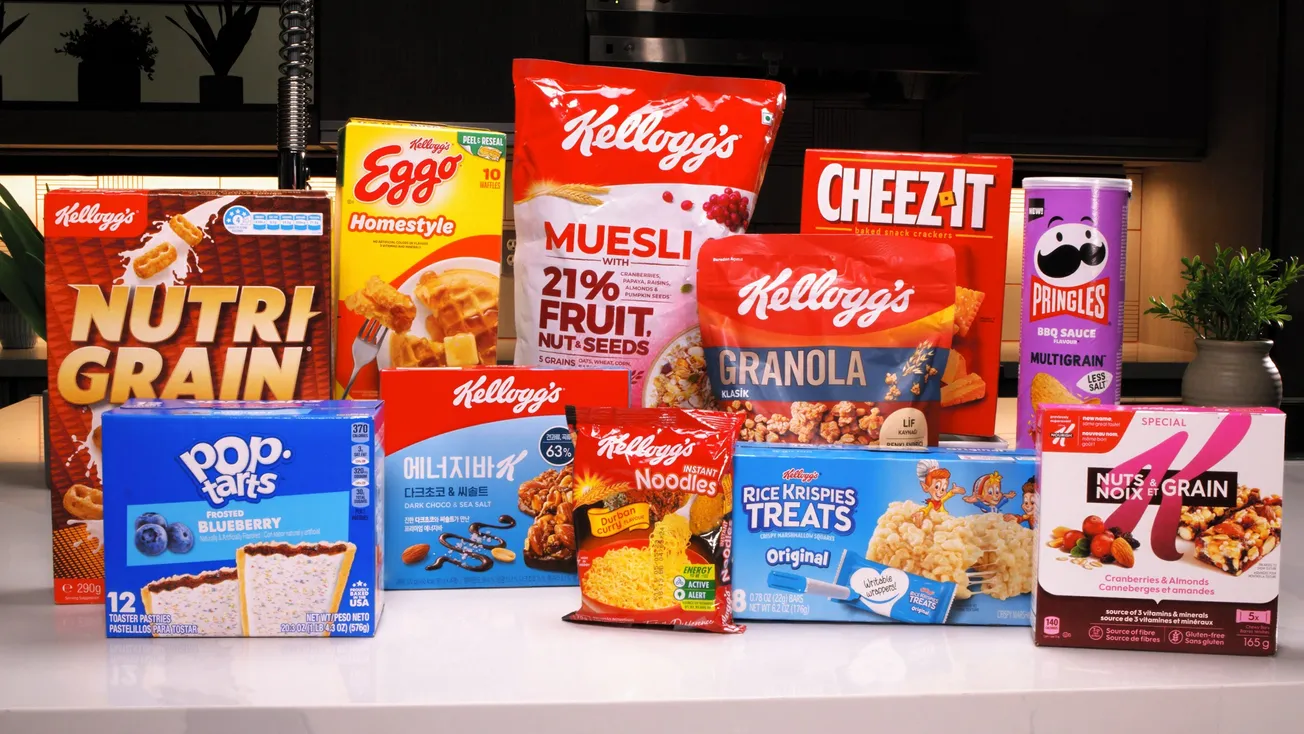
WOONSOCKET, R.I. — Rising PBM and specialty pharmacy sales and recently acquired pharmacy businesses lifted revenue at CVS Health Corp. for the second quarter, with adjusted earnings per share topping Wall Street’s consensus forecast.
CVS Health said Tuesday that for the second quarter ended June 30, sales climbed 17.6% to $43.73 billion from $37.17 billion a year earlier.
In the retail/long-term care segment, revenue totaled nearly $20 billion in the quarter, up 16% from $17.24 billion a year ago. CVS said the gain stemmed mainly from the additions of the Omnicare long-term care pharmacy operations last August 2015 and the Target Corp. pharmacy and clinic business in December, along with growth in comparable pharmacy sales.
Second-quarter same-store sales edged up 2.1% year over year, reflecting a 2.5% decline in the front end and a 3.9% increase in the pharmacy. Front-end same-store sales were negatively impacted by 80 basis points from the shift of Easter to March this year from April last year, as well as from softer customer traffic, partially offset by an increase in basket size, CVS reported.
Comparable pharmacy sales in the quarter include a negative impact of 355 basis points from introductions of new generic drugs, CVS said. Prescription count rose 3.5% on a 30-day equivalent basis.
During the quarter, CVS opened 20 new retail stores and two on-site pharmacies, relocated nine retail stores and closed 10 retail stores. As of June 30, the company operated 9,652 retail stores, including CVS Pharmacy locations in Target stores, in 49 states, the District of Columbia, Puerto Rico and Brazil.
CVS’ pharmacy services segment, including the pharmacy benefit management (PBM) business, saw sales jump 20.7% in the second quarter to $29.51 billion from $24.44 billion a year earlier, fueled primarily by growth in pharmacy network claim volume and specialty pharmacy, CVS said. Pharmacy network claims were up 22.6% year over year, mainly from net new business, according to the company.
In the quarter, the generic dispensing rate rose 110 basis points to 86.1% in the retail/long-term care segment and 155 basis points to 85.4% in the pharmacy services segment.
On the earnings side, net income for the second quarter came in at $924 million, or 86 cents per diluted share, compared with $1.27 billion, or $1.12 per diluted share, a year ago. CVS said the decrease reflects a loss on early extinguishment of debt of $542 million, an interest expense increase of $114 million and $81 million of acquisition-related integration costs, partially offset by a gain in operating profit. The company noted that the increased interest expense stems mainly from the issuance of $15 billion in long-term debt last July 2015 that was used to acquire Omnicare and the pharmacies and clinics of Target, plus debt assumed in the Omnicare acquisition.
Adjusted net earnings for the quarter were $1.42 billion, or $1.32 per share, up from $1.38 billion, or $1.22 per share, in the prior-year period. CVS said adjusted EPS excludes $197 million in intangible asset amortization, $81 million in acquisition-related integration costs and the loss on early extinguishment of debt of $542 million.
Analysts, on average, had projected adjusted EPS of $1.30 for the second quarter, with estimates ranging from a low of $1.29 to a high of $1.32, according to Thomson Financial.
CVS reported a 3.9% gain in second-quarter operating profit to $2.43 billion, reflecting gains of 1.4% in the retail/LTC segment and 10.4% in the pharmacy services segment.
“I’m very pleased with our solid second-quarter results across the enterprise,” Larry Merlo, president and chief executive officer of CVS Health, said in a statement. “Operating profit in the retail/LTC Segment was in line with expectations while operating profit in the pharmacy services segment exceeded expectations. At the same time, we have generated substantial free cash flow year-to-date and continued to return significant value to our shareholders through dividends and share repurchases.”
CVS adjusted its guidance for full-year adjusted EPS to $5.81 to $5.89, compared with its previous forecast of $5.73 to $5.88. The company said the revision excludes the loss on early extinguishment of debt and acquisition-related integration costs. Free cash flow is now projected at $6.3 billion to $6.6 billion, up from CVS’ earlier estimate of $5.3 billion to $5.6 billion.
Wall Street’s consensus estimate is for full-year adjusted EPS of $5.82, with projections running from a low of $5.79 to a high of $5.90, according to Thomson Financial.
“With our differentiated value proposition, we see 2017 shaping up to be another very successful PBM selling season, with substantial gross and net new business to date,” Merlo stated. “Given our outperformance in the second quarter and confidence in our expectations for the back half of this year, we are raising and narrowing our adjusted EPS guidance and also raising our free cash flow guidance for 2016.”
CVS forecasts adjusted EPS of $1.55 to $1.58 for the third quarter. The guidance excludes the loss on early extinguishment of debt and acquisition-related integration costs. Analysts, on average, project third-quarter adjusted EPS at $1.55, with estimates ranging from $1.46 to $1.65.
“CVS has finished integrating 1,667 Target pharmacies and is now turning its attention to building Rx volumes,” Jefferies analyst Mark Wiltamuth wrote in a research note Tuesday on CVS Health’s second-quarter results. “Patient care and adherence outreach will now start, PBM customers will be made aware of
the Target retail option and targeted marketing through both digital and radio is now under way.”
Wiltamuth noted in his analysis that CVS’ report on its PBM business should reassure investors. “PBM wins for the 2017 selling season came in with a very strong $7.4 billion in gross new wins and $4.6 billion in net new [business] versus our expectation for $3 billion to $4 billion in net new. Renewals are 75% complete, and retention is at 97.5% versus 97.2% for last year,” he said. “After three high-visibility PBM losses to OptumRx in May/early June, investors were concerned that either a price war was brewing or that CVS’ PBM marketing pitch was losing traction in the marketplace. With CVS indicating price discipline and strong wins/retention, these results should elicit a relief rally.”
*Editor’s Note: Article updated with analyst comment.









